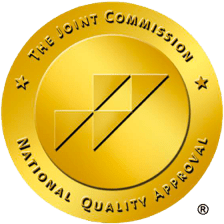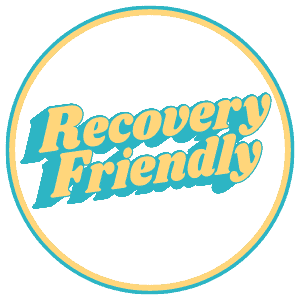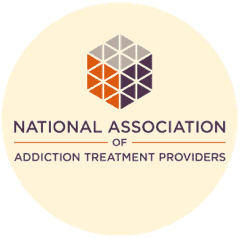The Merriam-Webster dictionary defines the word stigma as “a mark of shame or discredit.” As human beings, we naturally encounter a wide range of emotions on a daily basis. Shame is a bitter feeling that some of us experience more than others.
Many addicts in recovery experience shame when interacting with people outside the recovery community, because of the powerful stigma that exists around addiction. That stigma is fueled by misunderstanding about the causes of addiction, which many still see as a moral failing rather than a brain disease influenced by family history, genes, childhood trauma, and even unintended consequences from medical treatment for pain. Stigma is also perpetuated by the shame and regret many of us feel about the things we did during active addiction.
So what can we do to combat stigma and make space for recovery and healing? This is no small challenge, but with these things in mind it’s one definitely worth taking up.
- Recovery is an “inside job”.
- Educate yourself and others about the disease of addiction.
- Choose your words carefully and avoid labels.
- Surround yourself with allies.
- Break the silence.
Want to know more?
Check out these true stories of recovery from Next Step:
Logan
Four months into his recovery, Logan had secured a sponsor and a full-time job at the local hospital. Although he enjoyed the fast pace of his new job, he began to dread going to work. His supervisor had started asking him to pick up extra shifts. Logan had to say no each time because they conflicted with his NA meetings. He knew he had to put his recovery first, but he was scared to tell his boss why he couldn’t work evenings… he was sure he’d lose his trust or, worse, the job he’d worked so hard to gain.
Mark
Mark was rushed to the emergency room after a falling from scaffolding on his job site. Although the pain in his arm was excruciating, Mark had the presence of mind to decline the oxycodone the nurse handed him. When he asked for extra Ibuprofen instead, she told him it was better to get ahead of the pain and offered the medication again. Mark mustered up his courage and shared that he was in recovery and couldn’t take opioids. The nurse responded with a look that had become all too familiar. One that made the pain feel even worse.
Sam
Sam just celebrated one year of sobriety and decided to give dating a try again. He recently met someone online who shared his love of music and mountain biking. They’d been texting for a couple of weeks, and he was excited when Hayley asked him if he’d like to meet for dinner. But as the date neared, Sam found himself worrying about how he’d feel if she ordered a drink. He hadn’t told her he was in recovery and wasn’t sure how she’d react. He could feel shame beginning to creep in and couldn’t bring himself to respond to her texts.
Logan, Mark, and Sam are all struggling with the shame and fear that can come from admitting they are in recovery from a substance use disorder. But they are not alone. Far from it.
How the Stigma of Addiction Affects Recovery
Every day, millions of men and women gather in dimly lit church basements, community rooms, and other nondescript places where they are promised anonymity in exchange for recovery support for their disease. By contrast, people with just about every other health condition talk openly with friends, family, healthcare providers, coworkers, and even the cashier at the grocery store.
That’s the power of stigma.
Stigma is fueled by a misunderstanding about the causes of addiction, which many still see as a moral failing rather than a brain disease influenced by family history, genes, childhood trauma, and even unintended consequences from medical treatment for pain. Many of these substances, like opioids, cause brain changes that can make recovery lengthy and challenging.
Stigma is also perpetuated by the shame and regret many of us feel about the things we did during active addiction. The urge to use is often as powerful as the substances themselves, and both can drive us to lie, steal, abuse ourselves and others, and sacrifice many, if not all, of our values.
When we sober up, the shame can be overwhelming. We may willingly accept every painful judgment and stereotype thrown at us, leaving little room for forgiveness or the possibility of growth.
So, what can we do to combat stigma and make space for recovery and healing?
Steps to Reverse the Cycle of Shame
This is no small challenge, but it’s one worth taking up—not only for our own sake but for the millions who are in recovery and those who care about them.
Remember, recovery is an inside job.
What we tell ourselves is much more important than what others say about us. Focus on your recovery from working your steps to reaching out for support to showing up for your life. Remember to appreciate all of your hard work.
Educate yourself and others about the disease of addiction.
As with any disease, education is critical for regaining your health. Learn the biology of addiction and evidence-based strategies that reduce your risk for relapse. Be sure to share what you learn with others.
Choose your words carefully.
Stigma likes to hide in labels, so avoid them whenever possible. Be vigilant about self-stigmatizing (and self-sabotaging) language, attitudes, and behaviors. If you wouldn’t say it to your best friend, don’t say it to yourself or to anyone else for that matter.
Surround yourself with allies.
Create a shame-free zone by surrounding yourself with people who understand addiction and who support and honor those in recovery. Twelve-step groups and transitional living communities like Next Step Recovery are great places to start.
Break the silence.
The only way we will ever be free of stigma is by speaking up for the rights of those seeking treatment and recovery. That might involve sharing your own experience or helping someone find recovery. It isn’t always easy, but sometimes speaking your truth can change a mind or save a life. Be on the lookout for those life-changing opportunities.
“Shame cannot survive being spoken… and being met with empathy.”
—Brené Brown
Know someone who might benefit from this post? Please like and share this post with them. Or, if you have questions or comments, please leave them below! We’re always looking for ways to keep the conversation about recovery going. Education is one the most powerful tools we have to combat addiction.









